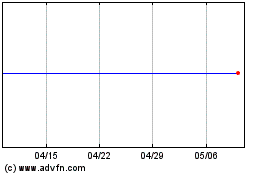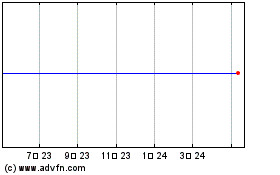Facebook Bans Use of User Data for Surveillance
2017年3月14日 - 5:08AM
Dow Jones News
By Deepa Seetharaman
Facebook Inc. said on Monday that data about its users cannot be
used for surveillance, cracking down on a method police departments
allegedly used to track protesters and activists.
The social-media company updated its data policies to explicitly
prohibit using "data obtained from us to provide tools that are
used for surveillance." Facebook didn't define surveillance in the
policies.
The move comes a few months after the American Civil Liberties
Union in October published documents by a startup, Geofeedia, that
detailed how it tracked activists during protests in Baltimore and
Ferguson, Mo. in 2015 and 2014 after two black men were killed
during encounters with the police.
Geofeedia's marketing materials, revealed by the ACLU, showed
how police were able to track social-media activity in specific
neighborhoods and get real-time alerts through Geofeedia. The firm
also urged police to follow hashtags on Facebook, Instagram and
Twitter Inc. associated with the Black Lives Matter movement.
(Instagram is part of Facebook.)
The report sparked a debate among advocacy groups over how
closely Facebook was monitoring the way third parties used its
data, considered one of the world's richest sources of information
on its users.
"Now more than ever, we expect companies to slam shut any
surveillance side doors and make sure nobody can use their
platforms to target people of color and activists," said Nicole
Ozer, Technology & Civil Liberties Director at the ACLU of
California.
By prohibiting the use of its data to track citizens, Facebook
is asserting its power in the face of law enforcement. It also
reveals the increasingly dominant role it plays in disseminating
information.
Facebook's granular data about its users is hugely valuable to
advertisers and developers who want to reach narrow segments of
people. But it has landed in trouble for privacy violations and
potential misuse.
Last year, Facebook amended its advertising policy to no longer
allow marketers buying housing, employment and credit-related ads
to target groups by ethnicity. The move followed an investigation
by news site ProPublica that it had been able to exclude any
Facebook members with an "ethnic affinity" when purchasing an ad
targeted to users looking for a home.
After the ACLU's investigation, Facebook, Instagram and Twitter
banned Geofeedia from using the platform. Since then, Facebook has
cut off other developers from using its data for creating or
marketing tools meant for surveillance, the company said
Monday.
Twitter acted more swiftly than Facebook, updating its data
policies in November to rule out the use of its data for
surveillance.
Facebook's moves come at a time when Chief Executive Mark
Zuckerberg has broadened Facebook's remit from "connecting the
world" to creating its "social infrastructure." One focus for Mr.
Zuckerberg is whether Facebook "prevents harm, helps during crises,
and rebuilds afterwards."
Facebook credited the ACLU and two other advocacy groups, Color
of Change, and the Center for Media Justice, for helping the
company formulate its response to broader public concerns over
social-media surveillance. In a collective statement, the groups
called this a "first step." Facebook didn't specify how it will
monitor if its data is being used according to policy.
Write to Deepa Seetharaman at Deepa.Seetharaman@wsj.com
(END) Dow Jones Newswires
March 13, 2017 15:53 ET (19:53 GMT)
Copyright (c) 2017 Dow Jones & Company, Inc.
Twitter (NYSE:TWTR)
過去 株価チャート
から 3 2024 まで 4 2024

Twitter (NYSE:TWTR)
過去 株価チャート
から 4 2023 まで 4 2024
